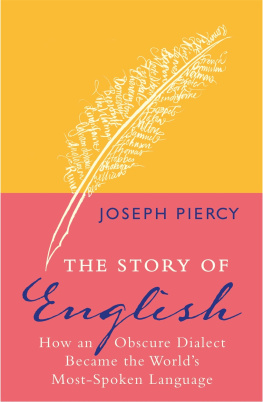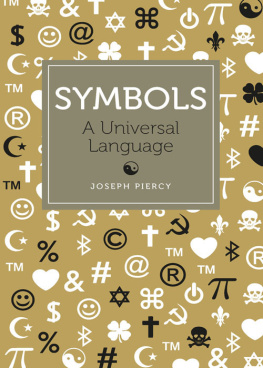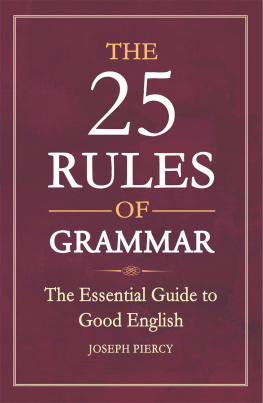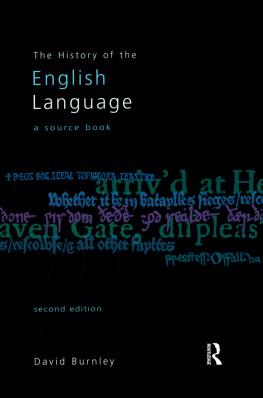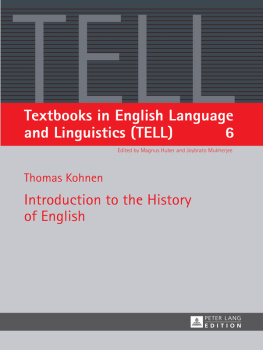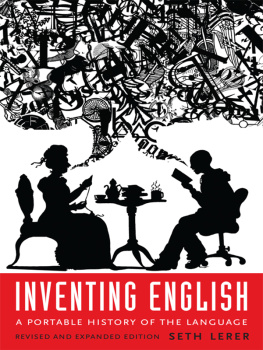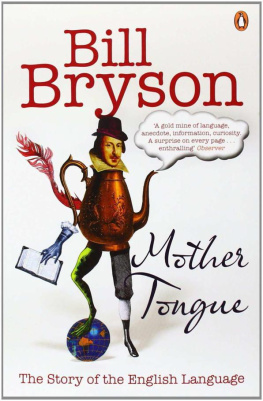By the same author:
Slippery Tipples: A Guide to Weird & Wonderful Spirits & Liqueurs
Are You Turning Into Your Dad?
The 25 Rules of Grammar
Symbols: A Universal Language

First published in Great Britain in 2012 by
Michael OMara Books Limited
9 Lion Yard
Tremadoc Road
London SW4 7NQ
Copyright Michael OMara Books Limited 2012, 2016
All rights reserved. You may not copy, store, distribute, transmit, reproduce or otherwise make available this publication (or any part of it) in any form, or by any means (electronic, digital, optical, mechanical, photocopying, recording or otherwise), without the prior written permission of the publisher. Any person who does any unauthorized act in relation to this publication may be liable to criminal prosecution and civil claims for damages.
A CIP catalogue record for this book is available from the British Library.
ISBN: 978-1-84317-883-5 in hardback print format
ISBN: 978-1-78243-514-3 in paperback print format
ISBN: 978-1-84317-923-8 in EPub format
ISBN: 978-1-84317-924-5 in Mobipocket format
Designed and typeset by Design 23
www.mombooks.com

Language is the armoury of the human mind, and at once contains the trophies of its past and the weapons of its future conquests.
S AMUEL T AYLOR C OLERIDGE ,
E NGLISH POET
(19721834)

Acknowledgements
I d like to offer my heartfelt thanks to the following people for their kind help, advice and general fortitude in assisting me with the writing of this book: Mathew Clayton for getting the project off the ground in the first place and his continuing faith and support; Toby Buchan, on account of his limitless patience, intelligence, good humour and kindly encouragement; the design, proofing and picture research teams at Michael OMara Books, particularly Jacquie Wines, Ana Bjeanevi, Ron Callow, Dominique Enright, Greg Stevenson, and Charlotte Buchan (and anybody else who has found my manuscript turn up on their desktop); James Fleet and R. Lucas and all at the University of Sussex Library for letting me use their excellent facilities and fielding my queries, and most of all to Joanna and Polly for allowing me the time and giving me the love and support I require to be in the privileged position to write.
Introduction
T he story of English is one of a struggle for survival against the odds, with centuries of conflict surrounding its development and growth. What with arriving and departing Romans, barbaric Germanic tribes, pillaging Vikings, conquering Normans and high-minded Latin scholars, English has had to put up quite a fight. Yet, not only has the English language survived, it has also triumphed. The language of a small island rose to become the language of a Commonwealth, the conquering tongue of a myriad cultures and histories. Today English is recognized globally and spoken by millions as a first or second language; in fact there are more users of English as a first or second language, than any other language in the world.
So where should our story begin? It begins with the obscure dialects of the Germanic tribes (the Angles, the Saxons, the Frisii and the Jutes, among others) who settled in Britain during the fifth century, silencing the native tongue of the Celts and giving voice to a language that we now call Old English. Next came Roman missionaries, bringing with them manuscripts written in Latin. Such was their influence on not just religion but learning, that religious monasteries became places in which monks became fluent in reading and writing in Latin. It was only a matter of time before the monks turned their classical writing skills to their native tongue. By the seventh century, the simple runic alphabet used by the Celts and the early Saxons had been replaced by the first Old English alphabet written English was born.
No one knows how many works in English were written at this time. The monasteries were often under attack by Viking invaders, forcing the monks to abandon them. When the Normans laid claim to England, English came to be regarded as the language of peasants and the preservation of Saxon writings would not have been high on the agenda of the new French king.
There is only one surviving manuscript of the Old English epic poem Beowulf. Known as the Nowell Codex, it forms part of the British Librarys Cotton Collection, and is held to be one of the most important works of Anglo-Saxon literature. Miraculously, it survived a fire in the eighteenth century.
The Norman Conquest did its best to smother Old English but, when it came to language skills, the Anglo-Saxons put on a show of resilience that the Normans failed to quash. Old English simply adapted and expanded, absorbing new words, forms and sound patterns until it evolved into the Middle English of the fourteenth and fifteenth centuries and the writings of such redoubtable authors as Geoffrey Chaucer, John Gower, William Langland, John Lydgate and Sir Thomas Malory.
William Caxtons printing press and the Renaissance period pushed the language still further forward into the Early Modern period, where Shakespeares words echoed around the Globe Theatre. Finally, the Industrial Revolution and the age of Imperialism spread English around the world, giving rise to different dialects, creoles and conflicting vernaculars.
Any written history is, to some degree, defined as much by what it chooses to omit as it is by what it chooses to include. I am humble in comparison to the Venerable Bede, but nonetheless share the same dilemmas he would have had when composing his early chronicles of England. What to pass over and what to leave out? It seems absurd perhaps that a history of the English language could avoid anything but a passing mention of the achievements of Jane Austen, Charles Dickens or the Romantic poets. This is not due to any misplaced personal pride or prejudice, simply that the language of the nineteenth century differs comparatively little from the language of the twenty-first century, apart from matters concerning manners and style.
English has never been a static or stagnant language and in the twenty-first century it continues to flex its muscles, with English speakers and dictionary editors kept hard at work chasing its ever-changing vocabulary. While many of us may mourn once familiar words such as seldom, which are now seldom used, we have little choice but to embrace or adapt to the language of today. The invention of the Internet and mobile phones has created many new words for example, which have entered the vocabulary of the modern world. Some will soon be overtaken by advances in technology; others will be here to stay.
The future of English is unpredictable. Will Standard English stand the test of time against the international language of netspeak or txt spk? Or will this simplified form, so useful for ease and speed of communication and exchange, infiltrate and overtake?
Whatever happens in the future, the rich and unrivalled history of the English language deserves to be lauded, its story to be told.
J OSEPH P IERCY, 2012

